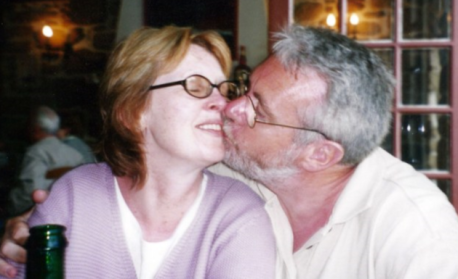Euthanasia is a “deliberate act or omission whose primary intention is to end another person’s life.” Assisted suicide is a criminal offence under s.2(2) of the Criminal Law (Suicide) Act 1993:
“A person who aids, abets, counsels or procures the suicide of another, or an attempt by another to commit suicide, shall be guilty of an offence and shall be liable on conviction on indictment to imprisonment for a term not exceeding fourteen years.”
The difference between euthanasia and assisted suicide is that, with euthanasia, the acts of the doctor result in the patient’s death, whereas with assisted suicide, the patient takes the final steps themselves, although with the doctors’ help, who has prescribed the required drug.
Both euthanasia and assisted suicide are illegal under Irish law. Euthanasia, depending on varying circumstances, is regarded as either manslaughter or murder and is punishable by up to life imprisonment. Assisted suicide is illegal, even though the person assisted having been asked by the chronically ill person, or did so to be compassionate and end their suffering.
There is a notable difference between acts and omissions leading to death. A person allows someone to die, if they are able to prevent the death, but do not do so. A person kills if they perform an act causing another to die, who would otherwise have not died. The doctrine of double effect must also be considered. This distinguishes between the consequences a person intends and those that are unintended but foreseen.
There is an increasing support for allowing competent adults to make their own medical decisions, even if this may result in their death. People often seek help in taking their own life, due to their illness making them disabled or physically unable to carry the act out themselves.
The issue hasn’t been raised before the Irish courts often and there is an obvious lack of case law in Ireland. The Irish Medical Council have stated, however:
“ You must not participate in the deliberate killing of a patient by active means”.

Marie Fleming and husband Tom Curran in earlier times. [Image- Family Handout]
“no explicit right to commit suicide, or to determine the time of one’s death, in the Constitution”
However, the Supreme Court did say it was the role of the Oireachtas to legislate for such matters.
This case was followed in 2015 by the largely unreported Gail O’ Rorke trail which was the first prosecution under the Criminal Law (Suicide) Act 1993. Ms O’ Rorke had attempted to organise a trip to Dignitas in Switzerland for her friend, Ms Forde who had Multiple Sclerosis. The Gardaí intervened and made Ms. O’ Rorke aware that to do so is an offence. She informed the Gardaí of having sent €400 to Mexico on Ms. Fordes’ behalf and said she only later found out it was for a life-ending drug. Ms Forde later went on to take this drug and successfully ended her own life.
Ms Rorke was acquitted of the offence and the jury also found that she was not guilty of “procuring” Ms. Fordes’ death by helping her arrange her funeral.
It is important to remember the differences in circumstances in the Gail O’ Rorke case, and the Fleming case, and to recognise that the O’ Rorke case does not represent a departure from the Irish Courts view on the illegality of assisted suicide and euthanasia in this jurisdiction. The O’ Rorke case simply didn’t amount to “assisting” suicide.
Personally, I would like to see reform in this area. I would like to think that if I had such a debilitating illness, that I would at least have the option to have a family member close by if I did wish to end my suffering. Of course there would be issues with capacity to consent, but given someone had the capacity, I don’t see why they should continue to suffer, or have someone close to them criminalised because they assisted them. To me it seems wrong that if people do wish to end their suffering, they often have to travel alone to places like Dignitas in Zurich.
What is your view on the issue?
(Featured Image: Stock Image – Morguefile)
